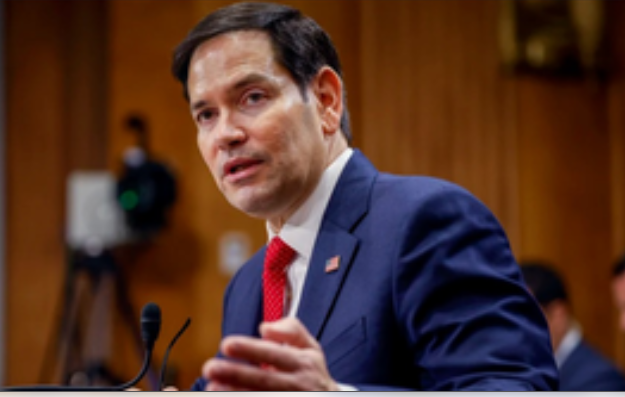America
Senate Foreign Relations Committee approves Marco Rubio's nomination for Secretary of State

Washington, Jan 21
The Senate Foreign Relations Committee late Monday approved Marco Rubio's nomination unanimously to serve as Secretary of State, and a floor vote on his confirmation is expected later in the night.
Rubio, the outgoing senior Senator from Florida, had bipartisan support from his colleagues on the Foreign Relations Committee, where he was previously a senior member of the panel. The vote was 22-0.
His nomination is the first to be approved by a Senate committee and is expected to be the only one to get a floor vote on Inauguration Day.
Rubio is among the least controversial of Trump's nominees and the Florida Republican could be the first to be confirmed.
Another pick, John Ratcliffe for CIA director, is also expected to have a swift vote.
Two other nominees for top positions on Trump's national security team, Pete Hegseth for defense secretary and Kristi Noem for homeland security secretary were also expected to be approved by committees on Monday evening.
President Trump, soon after taking his oath of office, formally submitted a slate of his top nominees to the Senate on Monday noon.
"Marco Rubio is a very intelligent man with a remarkable understanding of American foreign policy," Senator Chuck Grassley of Iowa, the senior-most Republican, said as the chamber opened.
Grassley said he expects Rubio will receive "an overwhelming vote for his confirmation".
It's often tradition for the Senate to convene immediately after the ceremonial pomp of the inauguration to begin putting the new President's team in place, particularly the national security officials.
During Trump's first term, the Senate swiftly confirmed his defence and homeland security secretaries on day one, and President Joe Biden's choice for director of national intelligence was confirmed on his own Inauguration Day.
With Trump's return to the White House, and his Republican Party controlling majorities in Congress, his outsider Cabinet choices are more clearly falling into place, despite initial skepticism and opposition from both sides of the aisle.
Senate Majority Leader John Thune said Monday evening he expects voting to begin "imminently" on Trump's nominees.
Democrats have calculated it's better for them to be seen as more willing to work with Trump, rather than simply mounting a blockade on his nominees. They're holding their opposition for some of his other picks who have less support, including Tulsi Gabbard for director of national intelligence and vaccine skeptic Robert F. Kennedy Jr. for health secretary.
Senate committees have been holding lengthy confirmation hearings on more than a dozen of the Cabinet nominees, with more to come this week. And several panels are expected to meet late Monday to begin voting to advance the nominees to the full Senate for confirmation.
The Senate Foreign Relations Committee, Senate Armed Services Committee, and Senate Intelligence Committee are all planning evening meetings to advance the nominations of Rubio, Hegseth, and Ratcliffe.
Rubio, a well-liked senator and former Trump rival during the 2016 presidential race, has drawn closer to the President in recent years. He appeared last week to answer questions before the Foreign Relations Committee, where he has spent more than a decade as a member.
As Secretary of State, Rubio would be the nation's top diplomat, and the first Latino to hold the position. Born in Miami to Cuban immigrants, he has long been involved in foreign affairs, particularly in South America, and has emerged as a hawk on China's rise.
During his confirmation hearing last week, Rubio warned of the consequences of America's "unbalanced relationship" with China. While he echoes Trump's anti-globalist rhetoric, Rubio is also seen as an internationalist who understands the power of US involvement on the global stage.
Rubio is likely to win bipartisan support from both Republicans and Democrats. He would take over for outgoing Secretary of State Antony Blinken, who has said he hopes the Trump administration continues Biden's policies in the Middle East to end the war in Gaza and to help Ukraine counter the Russian nomination.
With the Senate split 53-47, Republicans need almost all every party member in line to overcome Democratic opposition to nominees.
Objection from any one Senator, as is expected with Hegseth and several other choices, would force the Senate into procedural steps that would drag voting later into the week.



































